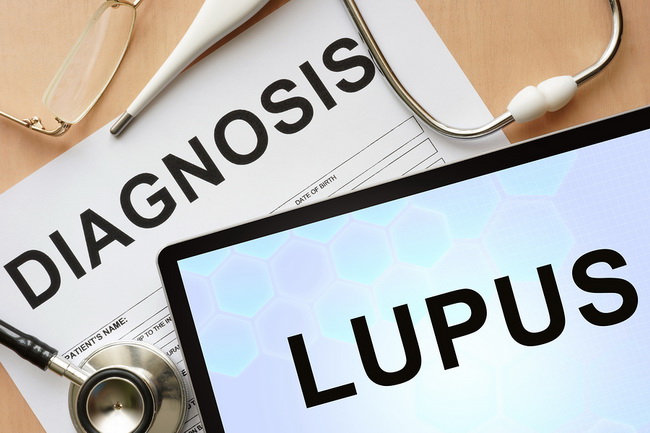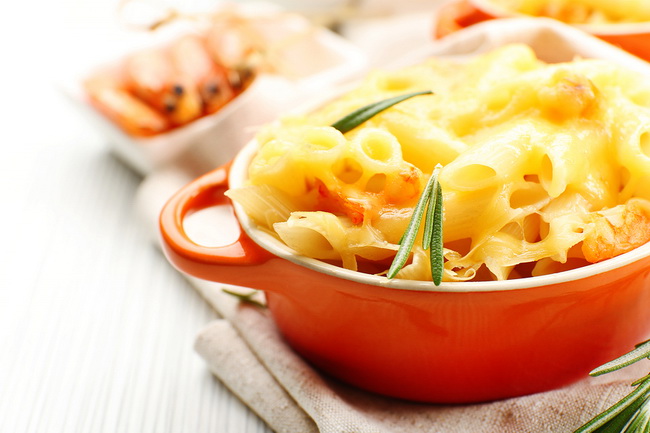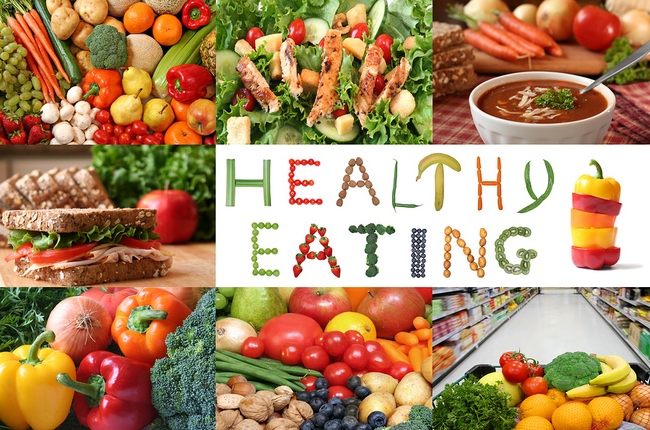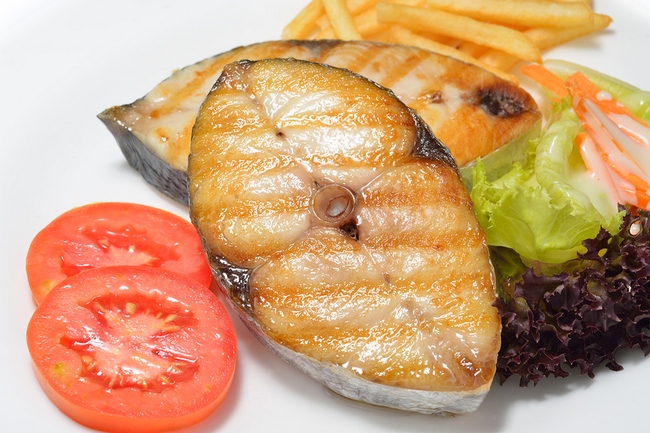- Make It Yourself Lavender Heart-Shaped Bath Bombs!
- 20 Things You Never Knew About “Down There”
- 12 Best Foods For Those Suffering From Arthritis Pain
- 12 Personal Hygiene Mistakes Almost Everyone Makes (Mom Never Told You About #4!)
- 15 Medicinal Plants And Herbs From The Cherokee People
- 12 Mind-Blowing Benefits Of Drinking Coconut Water During Pregnancy
- 12 Outstanding Winter Foods That Won’t Fatten You Up Like A Christmas Turkey
Best Diet for Those Affected With Lupus

Photo credit: bigstock.com
If you or someone you know has been diagnosed with lupus, you are already well aware of the baffling symptoms and the pain most people go through with this terrible auto-immune disease. Although the symptoms vary widely from person to person and can range from mild to life-threatening, one thing most people would agree on is that a person’s diet can really affect the symptoms and flare-ups.
Although the exact reasons as to why some things people consume tend to make their symptoms worse is not fully understood, but the fact remains that eating or not eating certain type’s foods, and even some supplements, can make lupus symptoms worse or better.
Check out our list of foods that you should cut out of your diet or start including in your diet if you suffer from lupus and see if these simple changes can give you the relief you are looking for.
The Lupus Diet – Foods That Need to Go
1. Red Meat
This is perhaps the biggest no-no on the lupus diet. Red meat causes inflammation in the body, something you, as a lupus sufferer, already have too much of. Many patients with lupus find that simply removing red meat from their diet gives them much needed relief from symptoms such as joint pain within a matter of days.
2. Artificial Sweeteners
All types of artificial sweeteners are made up of a variety of chemicals. Even persons who don’t have lupus have health problems or negative reactions to these chemicals, so imagine what they are doing to you! In fact, several research studies show that there is a link between artificial sweeteners and the development of lupus and that these completely unnatural sweeteners only make the symptoms of lupus worse. Avoid these like the plague.
3. Fast Foods and Junk Foods
These foods contain everything you want to avoid to begin with; excessive salt, sugar, and trans-fats. If you really must hit up the drive through, order a salad with a vinegar and oil-based dressing on the side.
4. Soda/Sugar
You already read that diet sodas are a big no-no, well, regular sodas are as well. In fact, sugar in general is something you need to avoid as much as you possibly can. Sugar hides in many innocent looking foods such as ketchup, barbeque sauce, even canned vegetables, so read labels carefully. Unfortunately this means you will also need to cut out goodies such as cakes, cookies, candy, and pie, but try not to see this as a punishment, but rather that you are rewarding yourself with a healthy diet and a healthy life.
Continue to Page 2

Photo credit: bigstock.com
5. Refined Carbohydrates
Eating refined carbs such as rice, white bread, pasta, and other types of snack foods all cause problems for those with lupus. They are processed much like sugar in the body and cause water retention, which often leads to worse symptoms.
6. Alfalfa
Many people enjoy alfalfa based green smoothies, sprouts, or have become accustomed to taking alfalfa supplements as this herb is super nutritious and has many vital nutrients, however, alfalfa is a big DON’T when you have lupus. This herb contains an amino acid (L-canavanine) which send the immune system into super hyped-up overdrive, which is good for other people, but not for those who suffer from lupus. Alfalfa often gives lupus patients extreme fatigue and muscle pain, and doctors note that it causes extreme variations in their blood test results.
7. Say No to Nightshade Veggies
Although there are no studies to prove a connection, but many people with lupus say that nightshade vegetables, including tomatoes, white potatoes, sweet peppers, eggplant, and hot peppers, only make their symptoms flare up, sometimes out of control when they consume large quantities or eat these veggies a few times per week. If you suspect these otherwise healthy veggies are causing you to have flare ups, keep a food diary and take a note of how you feel a few hours after eating certain nightshade vegetables.
SEE ALSO: Best Diet for the Prevention of Breast Cancer
8. Herbal Supplements
Although you might read about how certain herbs or supplements help to control lupus symptoms, there have been no studies and no hard evidence that any of them work at all. If you are taking prescription drugs or steroids for your lupus symptoms, some of these supplements can interact or interfere with your med’s. Always consult your doctor before you begin any herbal remedy or supplement, no matter how harmless it might seem.
Continue to Page 3

Photo credit: bigstock.com
Foods That You Should be Eating
The following list of foods has been shown to help relieve the symptoms of lupus, being especially helpful with alleviating the skin conditions that come with lupus.
1. Anti-Inflammatory Foods
Because lupus causes inflammation throughout the body, you should consume as many foods that have anti-inflammatory compounds as possible to counter-act this symptom. Foods that will help lower your inflammation level include organic strawberries, avocados, blackberries, dark green vegetables, cherries, blueberries, parsley, and garlic.
2. Whole Foods
No, we don’t mean the supermarket, but rather whole foods that are minimally processed. This means eating as many fresh, organic raw vegetables, fruits, grains, nuts, and seeds as you can. Many people who suffer from lupus find that simply cutting out processed foods, refined sugars, and carbs and replacing those with an organic, whole food diet, often relieves many of their symptoms and often makes them feel almost normal once more.
3. Easy to Digest Foods
If one of your symptoms is digestive problems, then eating foods that are easy to eat will help your digestive system heal. Try to eat more vegetable soups, bone broth-based soups, raw, organic dairy products, such as yogurt, and soak nuts and seeds overnight before eating.
Continue to Page 4

Photo credit: bigstock.com
4. Fatty Fish
Exchange your red meat for fatty fish such as salmon, tuna, sardines, tuna, and mackerel. Because fatty cold water fish are high in omega-3 fatty acids, they can reduce inflammation in the body. Also, omega -3 fatty acids help to protect the body from heart disease and since those who suffer from lupus have a much higher risk for heart disease than the general population, this is good news.
5. Eat Calcium-Rich Foods
If you are taking steroids to help control your lupus, one of the side effects is thinner bones. To help fight this effect, eat foods that are high in calcium and vitamin D, which will help make your bones stronger. Calcium-rich foods include dark leafy greens such as broccoli, bok choy, turnip greens, spinach, kale, bone broth, and raw dairy products such as hard cheeses and yogurt.
6. Water
One thing many doctors fail to discuss with their patients who have lupus is proper hydration. Although water is important for everyone, it is even more so if you suffer from lupus. You must drink at least 8 glasses of water every day to help flush toxins out of your body and improve your health. Several studies suggest that drinking water can help relieve some of the symptoms of lupus and since you need to drink water anyway, why not drink as much as you can? If plain old water sounds too boring, this is a great reason to experiment with adding different herbs and a squeeze or two of fruit juice to your water to make some tasty combinations that you won’t tire of. Try a the juice from an organic lemon and a few mint leaves or some slightly squeezed watermelon and strawberry juice, or maybe some lime juice with a sprig of fresh rosemary for a unique taste. There is no limit to the water variations you can create, so feel free to experiment and drink up! Find out benefits of warm water with lemon.
If your symptoms should become worse or if you have further questions about certain foods in your diet, always discuss these concerns with your doctor right away.
References:




























